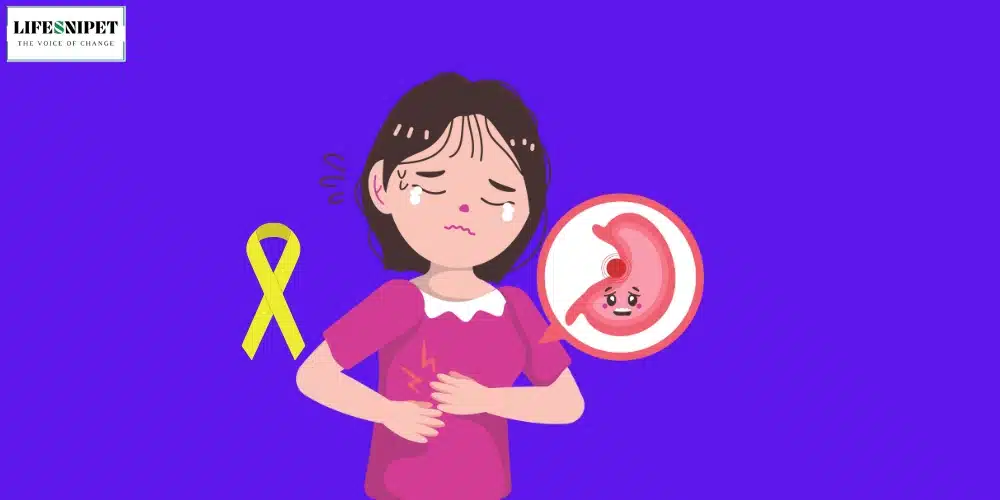As someone who has personally battled stomach cancer, I understand the importance of raising awareness about this devastating disease. Stomach cancer, also known as gastric cancer, is a malignant tumor that develops in the lining of the stomach. It is a significant health concern globally, with millions of people affected each year. In this article, I will delve into the causes, symptoms, diagnosis, stages, treatment options, and prevention strategies for stomach cancer. By shedding light on this topic, I hope to provide valuable information to those affected by this disease and empower them in their journey towards recovery.
Understanding the Causes of Stomach Cancer
The exact cause of stomach cancer is not yet fully understood. However, certain factors have been identified as potential contributors to its development. One of the primary risk factors is infection with Helicobacter pylori (H. pylori), a bacterium that can cause chronic inflammation of the stomach lining. Other risk factors include a family history of stomach cancer, smoking, a diet high in salty and smoked foods, and certain genetic conditions. It is crucial to be aware of these risk factors and take necessary precautions to reduce the chances of developing stomach cancer.
Common Symptoms of Stomach Cancer
Stomach cancer often presents with vague symptoms in its early stages, making it difficult to diagnose. However, there are some common symptoms that individuals should be mindful of. These include persistent abdominal pain or discomfort, unintentional weight loss, loss of appetite, nausea, vomiting, difficulty swallowing, and blood in the stool or vomit. If you experience any of these symptoms, it is essential to consult a healthcare professional promptly for further evaluation.
Diagnosing Stomach Cancer
Diagnosing stomach cancer involves a series of tests and procedures to confirm the presence of cancer cells and determine its extent. These tests may include imaging studies such as X-rays, CT scans, MRIs, and endoscopic procedures like an upper endoscopy or biopsy. It is crucial to undergo these diagnostic procedures to obtain an accurate diagnosis and develop an appropriate treatment plan.
Stages and Prognosis of Stomach Cancer
Once a diagnosis of stomach cancer is confirmed, the next step is determining its stage. Staging helps in understanding the extent of the cancer and formulating an appropriate treatment strategy. Stomach cancer is staged based on the size of the tumor, the involvement of lymph nodes, and the presence of metastasis. The prognosis for stomach cancer varies depending on the stage at which it is diagnosed. Early-stage stomach cancer generally has a better prognosis, while advanced-stage cancer may have a more challenging treatment course. It is essential to consult with a medical professional to understand your specific prognosis and available treatment options.
Treatment Options for Stomach Cancer
Treatment for stomach cancer depends on the stage of cancer, the overall health of the patient, and individual preferences. The primary treatment modalities for stomach cancer include surgery, chemotherapy, radiation therapy, and targeted therapy. In some cases, a combination of these treatments may be recommended. It is crucial to work closely with a multidisciplinary team of healthcare professionals to determine the most suitable treatment plan for your specific situation.
Surgery for Stomach Cancer
Surgery plays a crucial role in the treatment of stomach cancer, especially in early-stage cases. The most common surgical procedure for stomach cancer is a gastrectomy, where a portion of the entire stomach. Lymph nodes in the surrounding area may also be removed during surgery. Depending on the extent of the cancer, reconstructive surgery may be performed to restore the digestive system’s functionality. It is essential to discuss the potential risks, benefits, and expected outcomes of surgery with your surgeon before making a decision.
Chemotherapy for Stomach Cancer
Chemotherapy is a systemic treatment that uses powerful drugs to kill cancer cells throughout the body. It is often used in combination with surgery or radiation therapy to treat stomach cancer. Chemotherapy can be administered orally or intravenously, and the treatment regimen may vary depending on the specific drugs used and the stage of cancer. Side effects of chemotherapy can vary from person to person but may include fatigue, hair loss, nausea, and decreased blood cell counts. It is crucial to communicate any side effects experienced to your healthcare team for appropriate management.
Radiation Therapy for Stomach Cancer
Radiation therapy utilizes high-energy beams to target and destroy cancer cells. It may be recommended before or after surgery, or as a palliative treatment to relieve symptoms in advanced cases. The precise delivery of radiation therapy allows for targeted destruction of cancer cells while minimizing damage to healthy tissues. Side effects of radiation therapy may include fatigue, skin changes, and digestive disturbances. Discussing the potential benefits and risks of radiation therapy with your radiation oncologist will help you make an informed decision.
Targeted Therapy for Stomach Cancer
Targeted therapy is a newer treatment approach specifically targeting certain molecules or pathways in cancer growth. In stomach cancer, targeted therapy drugs may be used to inhibit specific proteins that promote tumor growth or spread. These drugs are often used in combination with chemotherapy or as a second-line treatment option if initial treatments are ineffective. As with any treatment, targeted therapy has its own set of potential side effects, which should be discussed with your healthcare team.
Supportive Care for Stomach Cancer Patients
Managing the symptoms and side effects associated with stomach cancer and its treatment is crucial for maintaining a good quality of life. Supportive care aims to provide relief from pain, manage symptoms, and improve overall well-being. This may include pain management, nutritional support, counseling, and palliative care services. It is important to discuss your symptoms and concerns with your healthcare team to receive appropriate supportive care throughout your cancer journey.
Prevention and Early Detection of Stomach Cancer
While it may not be possible to prevent all cases of stomach cancer, certain lifestyle modifications can help reduce the risk. These include maintaining a healthy diet rich in fruits and vegetables, reducing the consumption of processed and smoked foods, quitting smoking, and treating H. pylori infection. Regular check-ups and screenings can also aid in the early detection of stomach cancer, increasing the chances of successful treatment. It is important to be proactive in taking steps to prevent stomach cancer and to seek medical attention if you experience any concerning symptoms.
Conclusion: Living with Stomach Cancer
Living with stomach cancer can be a challenging journey, but it is essential to remember that you are not alone. Support from healthcare professionals, friends, family, and support groups can provide valuable guidance and emotional support. By staying informed about the latest advancements in treatment and taking an active role in your care, you can empower yourself in your battle against stomach cancer. Remember to prioritize self-care, maintain a positive mindset, and seek help when needed. With the right support and treatment, it is possible to live a fulfilling life even with stomach cancer.
FAQs
Q: Can stomach cancer be cured completely?
A: The prognosis for stomach cancer varies depending on the stage at diagnosis. Early-stage stomach cancer has a higher chance of complete cure, while advanced-stage cancer may require ongoing treatment and management.
Q: Are there any lifestyle changes that can reduce the risk of stomach cancer?
A: Yes, certain lifestyle modifications such as maintaining a healthy diet, quitting smoking, and treating H. pylori infection can help reduce the risk of developing stomach cancer.
Q: What are the side effects of chemotherapy for stomach cancer?
A: Side effects of chemotherapy can vary from person to person but may include fatigue, hair loss, nausea, and decreased blood cell counts. It is important to communicate any side effects to your healthcare team for appropriate management.
Q: How can I support a loved one with stomach cancer?
A: Supporting a loved one with stomach cancer involves being present, actively listening, and providing emotional support. Offer assistance with daily tasks, accompany them to medical appointments, and encourage them to seek support from healthcare professionals and support groups.

Welcome to LifeSnipet! At LifeSnipet, we’re your ultimate source for the latest health updates. Specializing in health and fitness-related diseases, we delve deep into Ayurvedic techniques, providing you with a comprehensive understanding of well-being. Explore our real-time updates, detailed articles, and ancient Ayurvedic wisdom for a holistic approach to health. Embark on a journey to a healthier, vibrant life with LifeSnipet – where your well-being is our priority!











